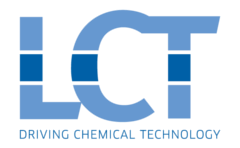Process intensification and Innovation in Olefin Production by Multiscale Analysis and design (OPTIMA): Single phase simulation framework and in silico reactor optimization
Aim
Developing and demonstrating the first validated 3D single phase multiscale modelling framework in OpenFOAM based on first principles, in which turbulence, chemistry and turbulence-chemistry interaction are properly accounted for. Develop and demonstrate a Pareto multi-objective optimization framework to come to superior turbulator reactor designs for steam cracking applications.
Context
This project focuses on process intensification for turbulent reacting systems, one of the most challenging problems in chemical engineering and fluid dynamics due to the complex and highly non-linear interaction between the flow motion and the chemistry. The applications will be focused on the olefin production via steam cracking and Oxidative Coupling of Methane (OCM).
OPTIMA will be a major game changer for the chemical industry as it is today. It could transform the petrochemical industry by valorizing methane and converting it to a platform molecule through OCM. Not only will this result in energy savings per ton olefin produced compared to the current state of the art, but it will also reduce the European dependence on crude oil because natural gas or biogas will be used instead. This will be driven by a unique modelling framework that will allow to go way beyond the considered applications.
Program
1. Develop LES model with detailed finite rate chemistry
2. Validation of modelling framework by comparison with experimental data
3. Develop Pareto multi-objective optimization framework for reactor optimization: Evaluate several possible approaches and software tools for optimization and select the most relevant one to the project. Then, develop meshing scripts and couple those to the chosen optimization program and the validated CFD models.
4. Optimization of turbulator geometry for steam cracking with respect to heat transfer and olefin selectivity: Once the automatic meshing and optimization procedure has been developed for 3D tubes, non-reactive LES will be performed in OpenFOAM to determine their heat transfer potential, pressure loss and olefin selectivity. The Genetic Algorithm (GA) implemented in the optimization software will then optimize the geometric design variables for the construction of the 3D surfaces.
